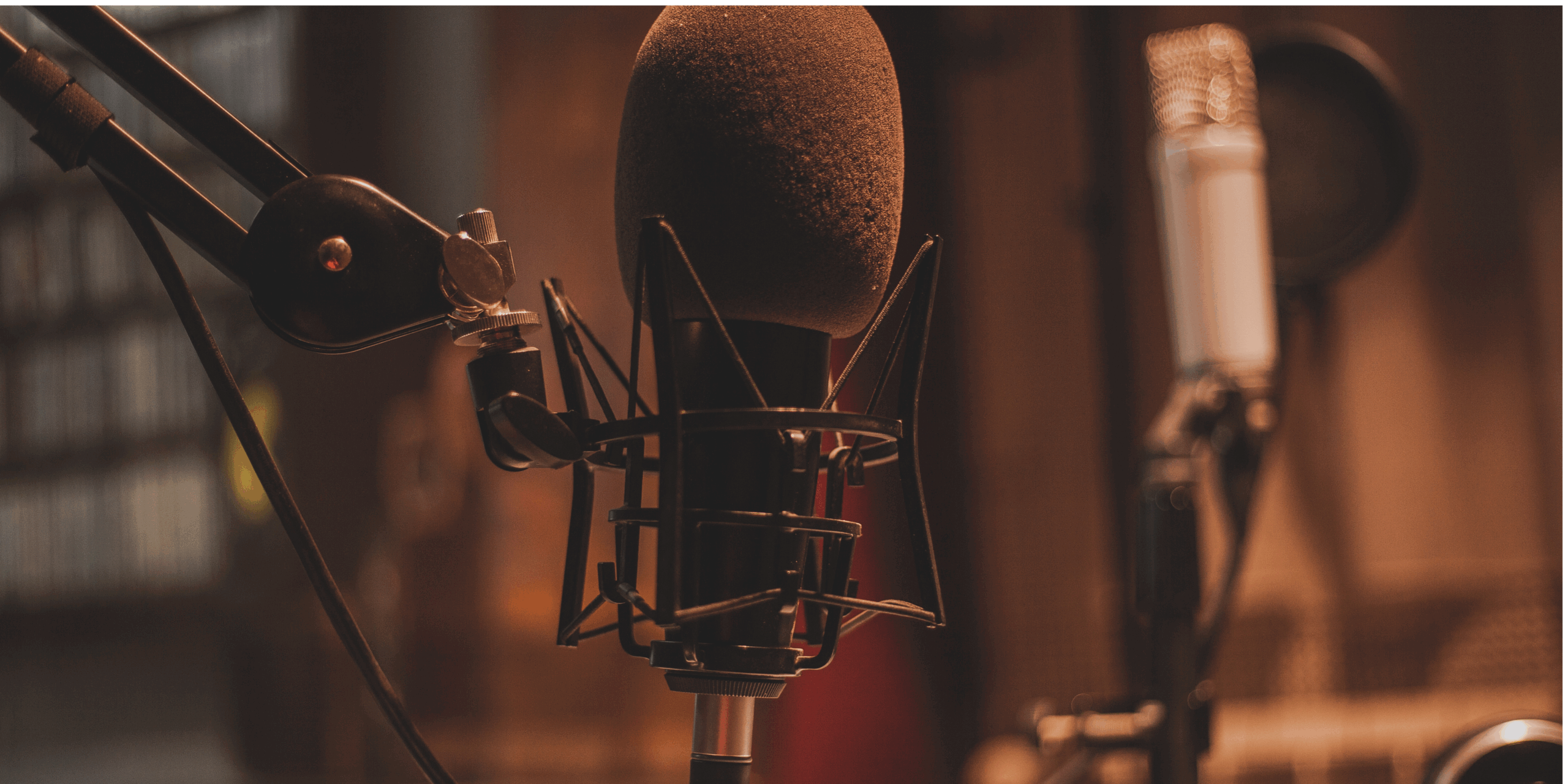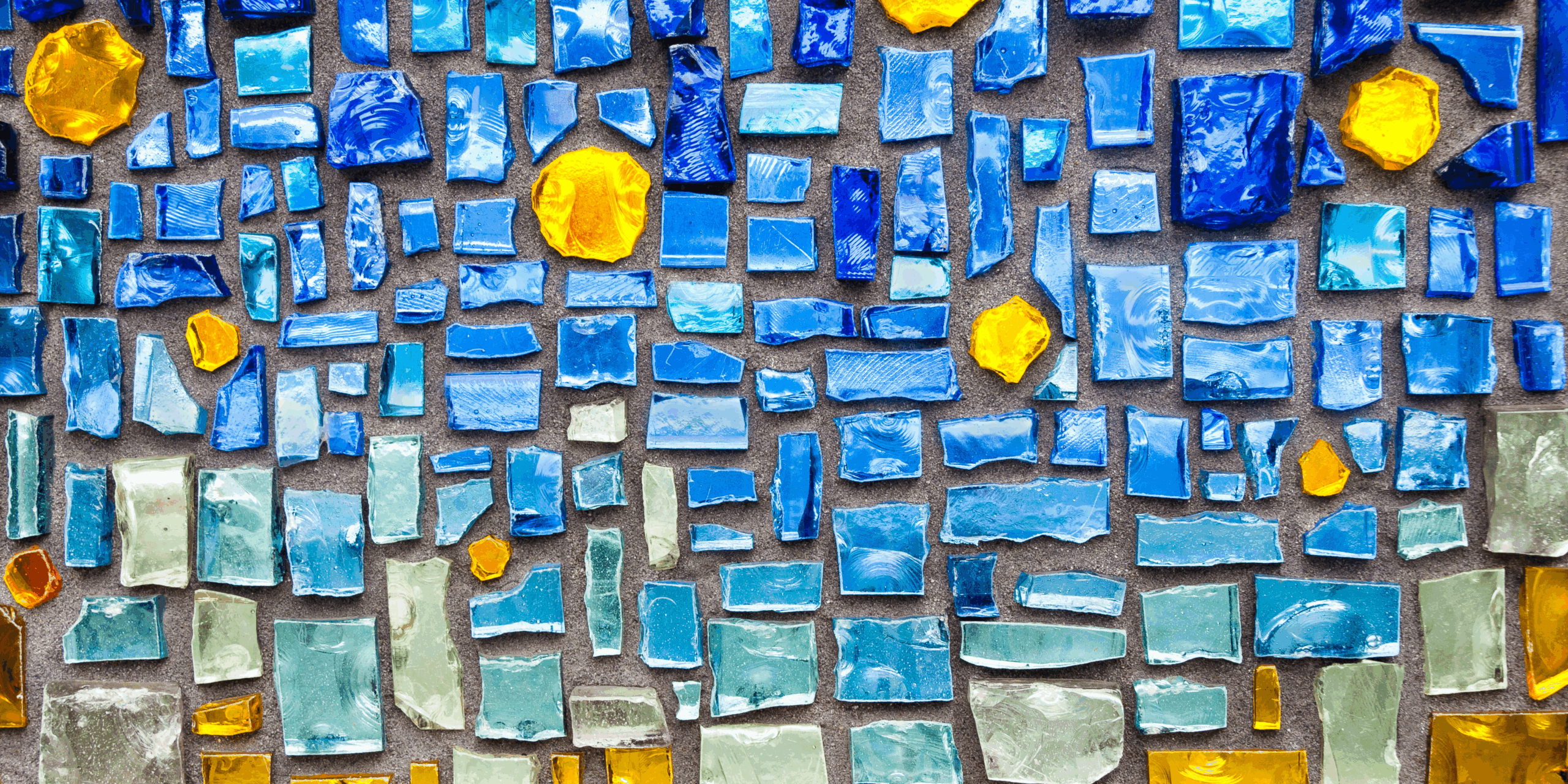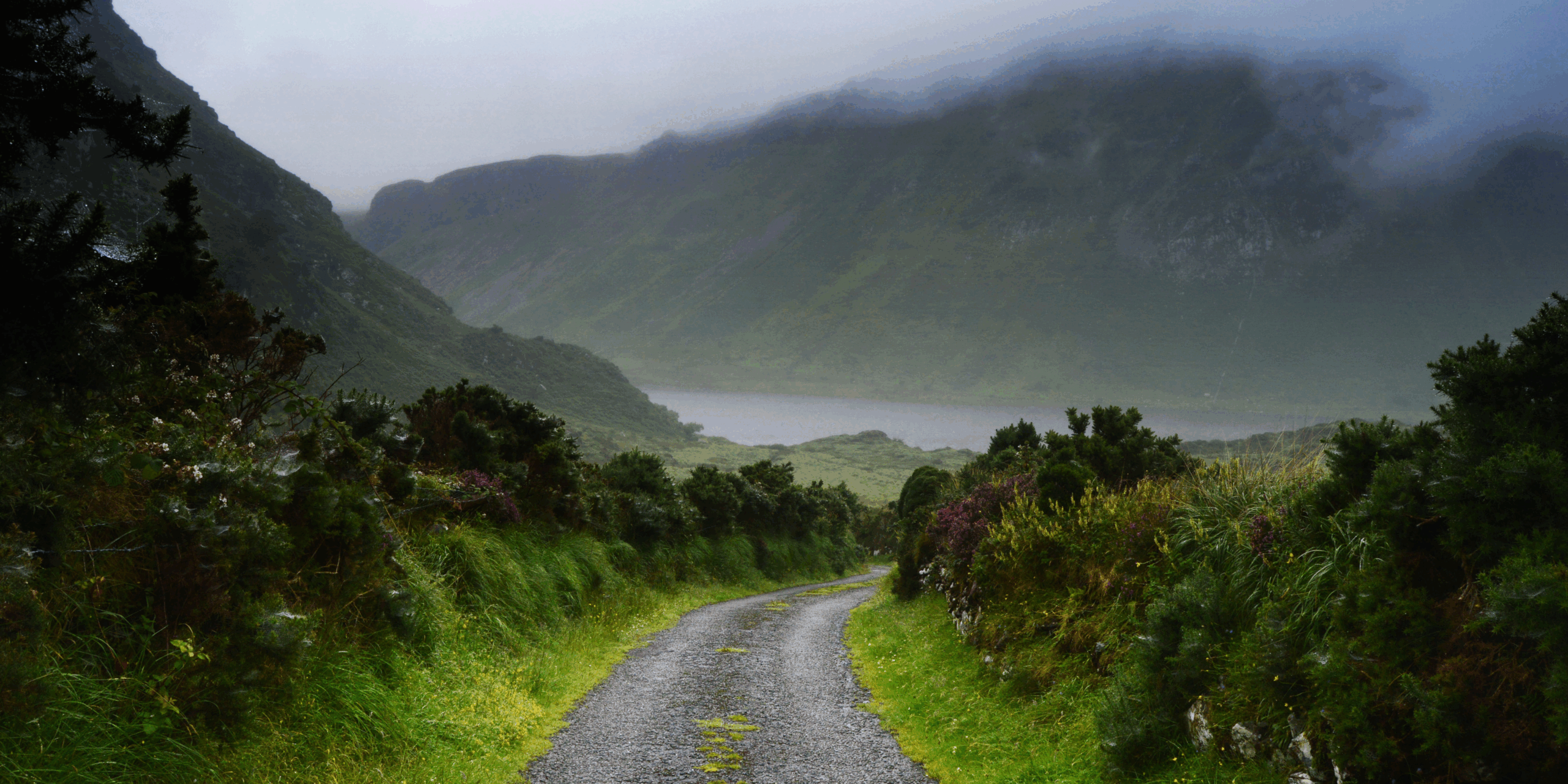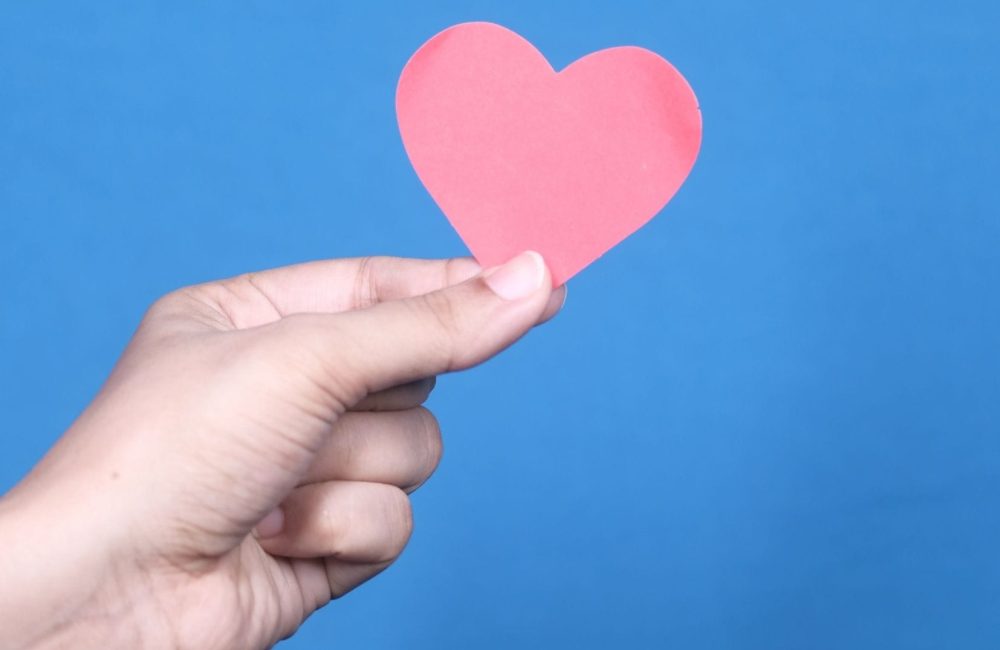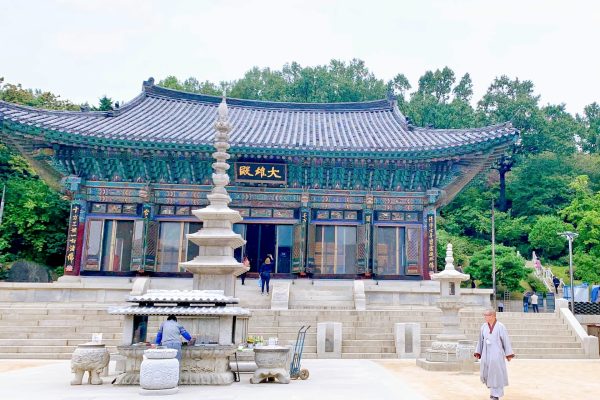Experiencing Friends Peace Team Training
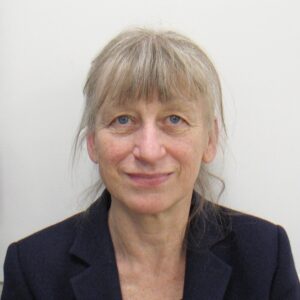
Jenny Haughton
Co-founder AVP Ireland, current Board Member
My experience of the 4 -11th July 2025 Friends Peace Team (FPT) training camp in Armenia was both harrowing and humbling. Harrowing, to hear about the incredibly difficult and growing zones of conflict and division in Europe, Africa and Middle East…and humbling, to hear directly from the people working in those communities who work help alleviate oppression, prejudice and untold human suffering.
I decided to go because I had heard through the Quaker network how FPT’s develop long-term relationships with communities in conflicts around the world and I wanted to get some first-hand training. Over eight days, for example, we heard about how women escaping from arranged marriages were helped; we learnt about circles of support providing respite for those in trauma; and we practiced tools and practical actions that can focus minds on non-violence and change. I believe it was nurturing and affirming for all involved, providing a safe place for reflection, grieving, solace and renewal, all in the spirit of goodness.
On another evening, Avid Ali shared his own transformative journey. Ali Abu Awwad is a prominent Palestinian peace activist and proponent of nonviolence and a founder of Taghyeer (Change). He is also a recipient of the Indira Gandhi Prize and has given a Ted talk. Ali grew up in a world of conflict arising from the establishment of the Israeli state in 1948. His mother was a leader in the Palestinian Liberation Organizations (PLO). Before the age of ten he was able to assemble a Kalashnikov. He experienced long periods in prison. A turning point came for him when some Israeli mothers visited his household after his brother Yousef’s death by the Israeli authorities. Ali, along with ex-fighters, chose to no longer live life as a victim, and formed the movement Change. He explained how this movement did not fall into that of an armed struggle, nor was it about citizenship, since Palestinians are not recognized as citizens and it was not so much a revolution as a way to rebuild society by not adopting violence. Ali makes the point that there is no just conflict and no just solution to the situation, only fair ones. He also attributes much of the Change movement to women whose leadership is respected, and whose community actions (not programmes) are about creating the right environment so that the right solutions become possible. The Change movement stands against any systems that will take away freedoms, and education amongst youth is key.
The first three training days were essentially the Basic Level AVP with an emphasis on personal transformation. This, then, naturally led into an advanced special workshop on Cultures of Justice and Peace, with a focus on social transformation. A roadmap guided us from personal transformation (empowerment and resiliency – friendship and agreements, affirmation and safety, communication and remembering, cooperation and connection) through to social transformation (discernment and liberation – confidence and equality, conviction and simplicity, transformation and feedback, direction and settlement). All of this challenges the self and begins and returns to the question ‘What truth is working in me?’
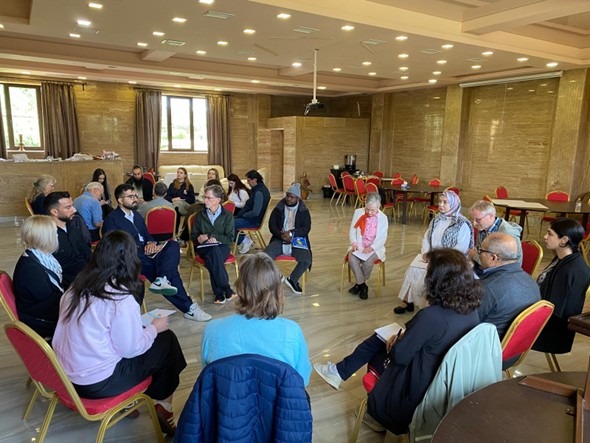
I remember one particularly interesting exercise about the core self which had two parts. For the first part, we were asked to remember a recent occasion when we were fully alive, energised and engaged, and then to make an abstract (not literal) drawing of this feeling. I remembered holding my three-month-old grandson Mattie, and the sheer joy and delight of the holding a living whole person. I drew flowing curves rippling outwards in warm colours. We all posted our drawings and shared our experience, and these remained for the duration of the workshop (see above). The second part of this exercise emerged in a later session where we were to evoke this feeling into practice when tackling a conflictual situation. This movement from personal to social was a reminder of how positively powerful we all are, if we could just tap into it! Indeed throughout the workshop we were constantly affirmed in being true to ourselves. Every session was posted and followed a recognisable pattern: welcome, agenda review, gathering, talk, exercise, further application, evaluation and close.
There was a strong emphasis on the power of companionship. At one point, we were asked to come up with an individual statement or vision. This would then be written down and shared in a small group. Each group member had a role – the first companion would share back exactly what s/he had heard and then the person making the statement could affirm or change this and so on. In addition to so much more, this was a clarifying exercise, about being really present, giving and receiving feedback and learning to be open and available.
As we travelled more deeply into social transformation, we explored and discussed the dynamics and intergenerational patterns of prejudice and privilege in our communities. The facilitators noted that this was new territory, requiring us to look at circumstances in which we become perpetrators, controllers or/and rescuers. This time in small groups, using a Speak Out exercise, we prepared a text for a particular reader, articulating what we saw/heard, pointing out what was wrong, how it made us feel and what change was necessary. This is just one example of an empowerment tool that can be applied in a variety of situations.
I was fortunate to share a room with a Chechen participant (name removed for personal security). While I did not speak a word of Russian, we seemed to relate very well, and it was a joy to hear her talk about the Young Women’s Development Group (YMDG) in Chechnya. She pointed out that under with the Russian Foreign Agent Law, there is little to no NGO support for such work. YMDG comprises young women aged 12-17 year who are severely affected with hearing and speech impairments and have had no pre-school education. The enlightened work of YMDG is undertaken by professionals in sign language and is focused on social and psychological education and self-development including creating conditions for the development of personal skills. This includes girl’s rights and knowledge about their bodies, health, well-being and self-defense. She pointed to noticeable changes including the reduction of bullying in school environments. In recent years, YMDG has begun providing sign language lessons to parents. We also heard from another Chechen participant who works with boys in a similar situation. Until recently, his group had Swedish support in educational video clips on themes such as gender equality. However, his work has attracted scrutiny by the Russian secret service, and since the war with Ukraine, this work has stopped. As he points out, it’s hard to know what they are looking for.
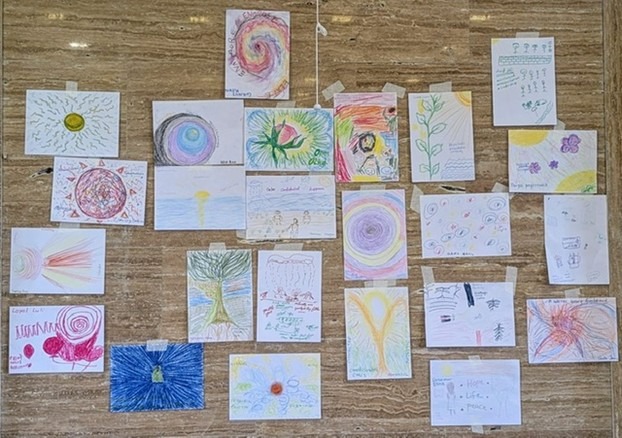
Returning to Ireland, I am convinced that being amongst those in need is both an act of solidarity as well as a search for greater equality for one world. The workshop helped me to discern and affirm my strengths and has given me the courage to continue, cheerfully.
Armenia was an interesting choice to hold this training camp, accessible to people coming from the surrounding Middle Eastern countries and further afield. Thirty years independent, evidence of seventy years of Russian control was evident everywhere in the massive, often vacant soviet-style bleak buildings now littering this mountainous country and its once beautiful valleys. We stayed in a soviet-style holiday camp beside lake Sevan, and on our last day, visited the Armenia Genocide museum in Yerevan. In a country that is clearly trying to find its way again, we were warmly hosted and nurtured with largely vegetarian fair throughout our stay.
There is so much more I could say about the friendships formed over the eight days and the renewed spirit of the work that continues when everyone returns home. I have learnt much and continue to reflect on the 60 hours of workshopping. I recommend FPT training camps to anyone of any age and every ethnicity, concerned about the trend to armaments in the world; to anyone who has Alternatives to Violence (AVP) experience at any level and to anyone who wants to tool up on how to volunteer at the grassroots with people in zones of conflict. To anyone who discounts themselves due to age or is unsure of how to spend their retirement, I share this quote from the booklet ‘Steps Towards Inner Peace’ by the Peace Pilgrim: ‘Retirement should mean, not a cessation of activity but a change of activity with a more complete giving of your life to service. It should therefore be the most wonderful time of your life – the time when you are happily and meaningfully busy’.
A way to start is to attend the FPT monthly meeting. Or invite a speaker to your community. Note that the FPT Europe and Middle East section is relatively young.
Check out https://friendspeaceteams.org/europe/

